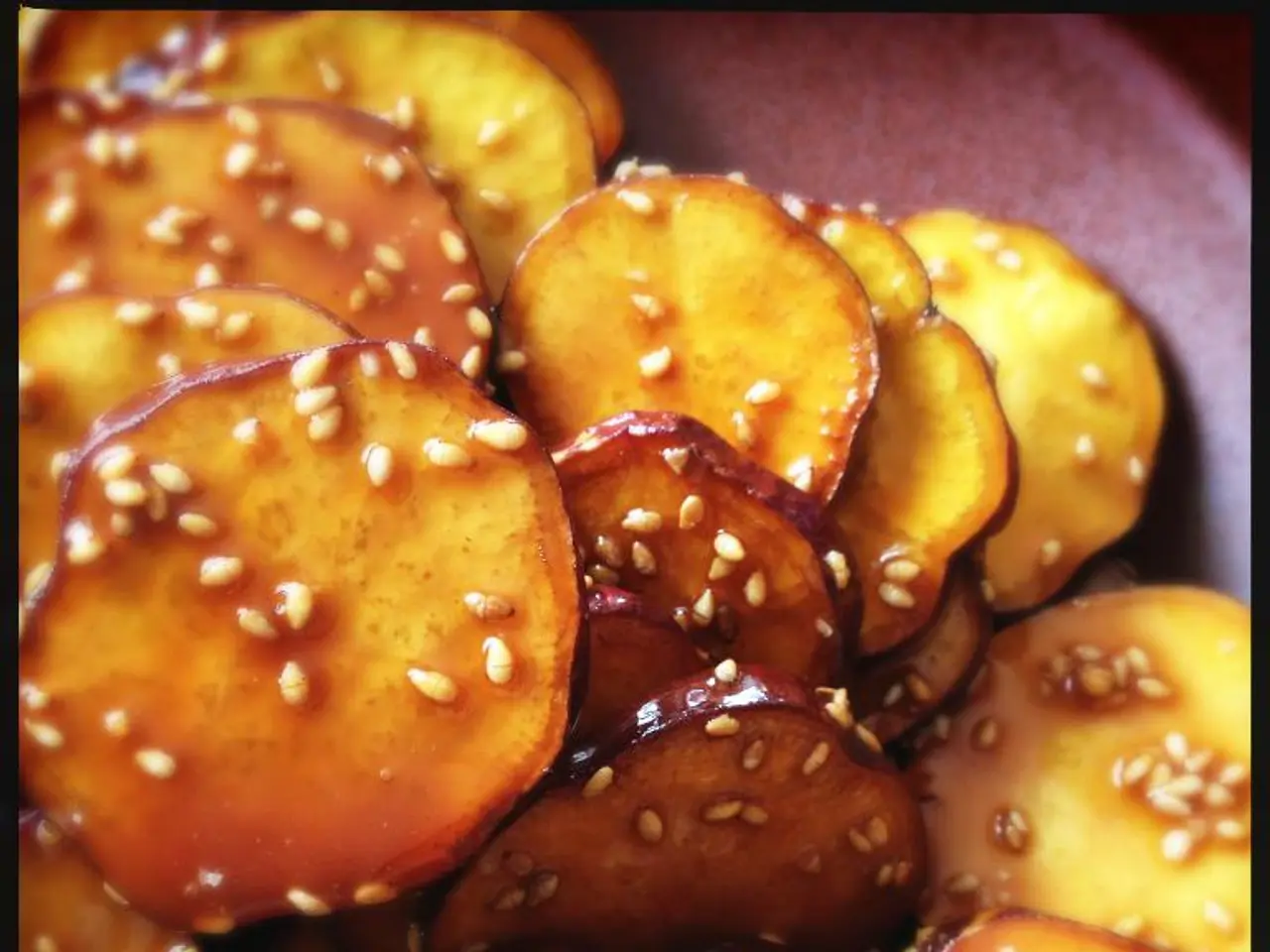Unhealthy Facades: Reevaluating the Nutritional Claims of So-Called Wholesome Foods
In the realm of health-conscious eating, it's easy to fall into the trap of believing that every snack labelled 'healthy' is indeed beneficial for our wellbeing. However, a closer look reveals that some seemingly healthy options may contain high amounts of calories and sugar, potentially sabotaging our dietary goals.
One such snack is granola bars, often marketed as a nutritious choice. But many store-bought varieties are packed with added sugars and calories, despite their wholesome appearances. Although oats and nuts are nutritious, the added sweeteners and syrups can make these snacks calorie-dense and sugar-loaded.
Flavoured yogurt, another popular choice, can also be deceiving. While plain Greek yogurt is a nutritious staple, adding honey or sweetened fruit toppings can significantly increase the sugar content. Some flavoured or fruit-on-the-bottom yogurts also contain added sugars that raise the calorie content beyond the healthy range.
Trail mix, a favourite among hikers, can be nutritious with nuts and seeds, but the inclusion of dried fruit often brings concentrated sugars. Plus, nuts are calorie-dense, so portions must be controlled to avoid excess calorie intake.
Energy or breakfast bars, often marketed as fitness or energy products, are another culprit. These bars are often packed with ingredients like dates, seeds, and nuts but may also have added sugars and oils for taste and texture, which boost calorie counts. Homemade versions are typically healthier than processed ones.
Apple slices with nut butter, while healthy in moderation, can also be calorie bombs. Nut butters like almond or peanut butter are very calorie-dense due to their high fat content. Large portions can quickly add many calories to a seemingly healthy snack.
The consumption of pre-packaged smoothies can also lead to a high sugar and calorie intake, making it better to blend smoothies at home with control over ingredients. A single smoothie, especially pre-packaged varieties from the supermarket, can contain 60 to 80 grams of sugar and up to 800 calories.
Muesli bars, another supposedly healthy snack, frequently contain hidden sugar, palm oil, flavors, and other questionable ingredients. Easter treats, while enjoyable, can be high in calories and contribute to weight gain if consumed thoughtlessly.
Eating more dried fruit because of its convenience and taste can result in a rapid increase in calories and sugar intake. It's important to be mindful of portion sizes when consuming dried fruits such as dates, figs, or apricots, as they can contain a high amount of sugar, with 30 grams (approximately 3-4 dates) delivering a similar amount of sugar as fresh fruit, but in a smaller serving size.
In summary, maintaining a balanced diet requires careful consideration of the food we consume. Reading labels, controlling portions, and making healthier choices, such as opting for homemade granola over store-bought varieties, can help us avoid unintended calorie and sugar overload. Enjoying treats like Easter treats consciously and keeping an eye on calorie and sugar intake is key to avoiding weight gain during festive seasons.
- Despite their marketing as nutritious, some muesli bars contain hidden sugar, palm oil, flavors, and other questionable ingredients, inflating their calorie and sugar contents.
- The high fat content of nut butters, such as almond or peanut butter, makes apple slices with nut butter a calorie-dense snack, potentially sabotaging health-and-wellness goals.
- It's crucial to be mindful of portion sizes when consuming dried fruits like dates, figs, or apricots, as they can contain a high amount of sugar, making them potentially calorie- and sugar-loaded, even in smaller serving sizes.




